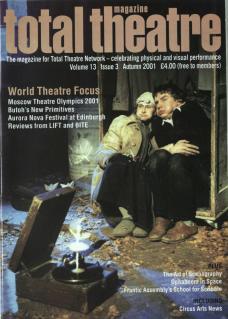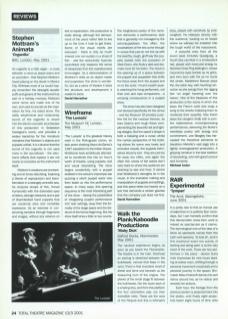The Lusiads is the greatest literary work in the Portuguese canon, an epic poem charting Vasco da Gama's 1497 expedition to the Indian Ocean. Wireframe have ambitiously attempted to condense this into an hour's worth of theatre, using puppets, text and visual storytelling. The show begins wonderfully, with a puppet landlord in the venue's impromptu bar quizzing a silent puppet sailor who then leads us into the performance space. In many ways, this opening sequence is the most interesting part of the show – raising the possibilities of integrating puppet performance into 'real' settings, away from the formality of the stage space and the distance of the formal beginning. But the show itself sinks a little on two counts.
The heightened poetry of the narrative demands a performance style that is generally not managed by the actor/puppeteers. Too often, the vocalisations of the text come through in voices that just do not line up with the swarthy, rough, gruff way the puppets looked (with the exception of Mark Down, who finds a dark and dramatic tone for his texts). The result is the opening up of a space between the puppet and puppeteer that shifts the focus away from the puppet and on to the actor. I found myself usually watching the living performers, not their cork and rope companions – a worrying consequence in a puppet show.
The show has also been designed and devised specifically for the venue – and the Museum of provides a perfect foil for the nautical themes, its bare beams and rough floors complementing the beautiful set and lighting designs. But the space's shape is both a blessing and a curse: whilst the narrow perspective of the building allows for some very lovely and evocative visuals, the puppets themselves became lost – they are just too far away too often, and again the often thin voices of the actors don't carry back to where the audience are straining to see and hear. It seems that Wireframe's strengths lie in the visual, in the evocative making and manipulation of puppets and settings, and this piece relies too heavily on a text that demands a certain gravitas that the company just does not find.

